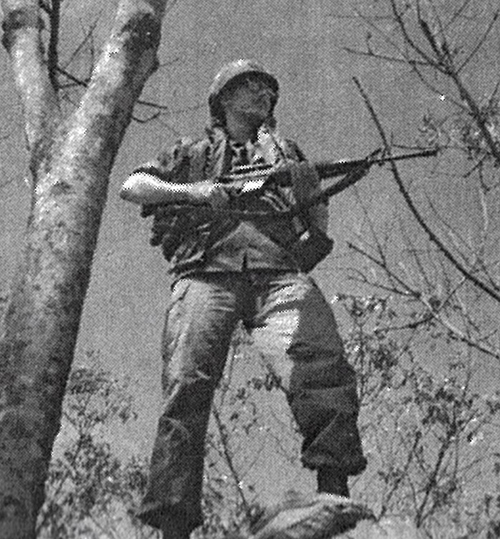Joe Dunn, historian and proud Vietnam veteran, to speak at museum
November 20, 2023What do you get when someone who teaches the history of American involvement in Vietnam also served in that war?
Sometimes you get reminiscence. Sometimes you get didactic rants about “imperialism.” Sometimes you get personal war stories of derring-do, fanciful to varying degrees.
But with Joe Dunn, the Charles A. Dana professor of history and politics at Converse College, you get a serious, informed effort to explain the complex reality of history in a world that is increasingly uninterested in history of any sort.
Dunn will bring that and more when he delivers a free lecture at noon on Friday, Dec. 1, at the South Carolina Confederate Relic Room and Military Museum in Columbia. The program is open to the public, and is presented in connection with the museum’s sprawling, unique exhibit, “A War With No Front Lines: South Carolina and the Vietnam War, 1965-1973.” It is part of the museum’s regular Lunch and Learn series.
At the entrance of that exhibit, it is noted that “Many South Carolinians had never heard of Vietnam before the war.” This is true. As an avid reader, Dunn at least had some intimations. He read The Ugly American when he was in the 8th grade, but he didn’t know that the fictional country Sarkhan in the novel represented a place known today as Vietnam. But he kept reading over the years, and now has more than 1,000 Vietnam-related books on the shelves of his study at home.
He also had personal experiences. He had not expected those experiences to include the war in Southeast Asia as the early and mid-1960s wore on, and he went to college and started graduate school behind a comfortable wall of exemption. But in 1968 the exemptions for students and teachers were removed, and in January 1969, he found himself in Vietnam.
He began as a clerk and eventually was promoted to sergeant, running an electronic intelligence unit for the 199th Infantry Brigade. He finished his tour with the 1st Cavalry Division after the 199th was deactivated. His book about his service, Desk Warrior: Memoirs of a Combat REMF, has been cited as one of the most unique and important memoirs on the war.
So he will tell some war stories. But the main thing for him is placing and explaining the war in terms of the larger universe he has inhabited for so long – history. He stresses the way ideas about past events change constantly over time, rather than being carved in stone. That happened all through the Vietnam War itself, and perceptions and explanations have shifted every year since.
After the war and after obtaining his doctorate, he taught soldiers about the war – on Army, Air Force, and Navy bases in Germany, Spain, Greece and Turkey. Later, he taught in a number of settings in a number of countries – including a stint as an exchange professor at the University of Iceland – and has spent the last half a century at Converse.
“War breaks people and it makes people. Vietnam did both,” he says. His heart goes out to “those broken from the war and those who could not turn loose no matter how bad it had been.”
“On the other hand, war challenges moral fiber and others are made by it. I’ve seen a lot of that as well. It shaped who I am today. The record will show that Vietnam veterans for the most part have done well in life, and most consider it a positive experience, even those who experienced heavy combat.”
“I could not be prouder of my vet status and of my service.” His first advice to “students who wish to go into national security careers [is] to be a vet. But I considered the Vietnam War bad policy at the time — the wrong war at the wrong time, fought badly. It wasn’t immoral, just wrong.” But he says that doesn’t take away from the fact that “vets should be proud of their service.”
He’ll elaborate on all that on Dec. 1. And you are invited.
About the South Carolina Confederate Relic Room and Military Museum
Founded in 1896, the South Carolina Confederate Relic Room and Military Museum is an accredited museum focusing on South Carolina’s distinguished martial tradition through the Revolutionary War, Mexican War, Civil War, Spanish-American War, World Wars I and II, Vietnam, the War on Terror, and other American conflicts. It serves as the state’s military history museum by collecting, preserving, and exhibiting South Carolina’s military heritage from the colonial era to the present, and by providing superior educational experiences and programming. It recently opened a major new exhibit, “A War With No Front Lines: South Carolina and the Vietnam War, 1965-1973.” The museum is located at 301 Gervais St. in Columbia, sharing the Columbia Mills building with the State Museum. For more information, go to https://crr.sc.gov/.





















